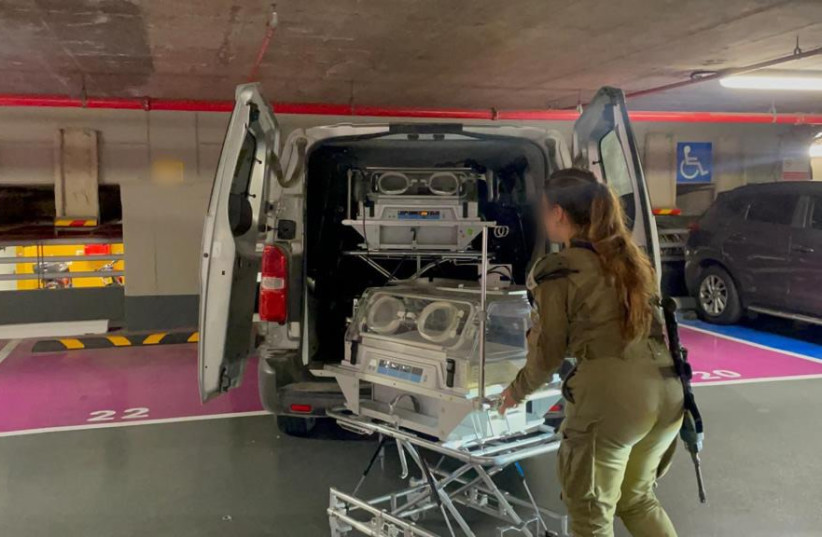International health authorities must lead efforts to cope with health dangers to Gaza civilians.
So believes Prof. Nadav Davidovitch, a leading epidemiologist and dean of the School of Public Health at Ben-Gurion University (BGU) in Beersheba.
“The prime minister, defense minister, Health Ministry, the WHO, the International Red Cross Committee, and health authorities in various countries must get involved in protecting civilians in Gaza from being infected with diseases.” He elaborated.
“As sewage flows, children need to be vaccinated, and as the winter reaches those living in tents in the southern part of the Gaza Strip.”
“This is a strategic decision, not only a health issue,” said Davidovitch, the principal researcher and Health Policy Program Chairman at Jerusalem’s Taub Center for Social Policy Studies in Israel in an interview Sunday with The Jerusalem Post. “So far, the Health Ministry in Jerusalem has not been involved. As the war continues, the world must help out in coordination with Israel.”
He continued that he and his Israeli colleagues are preparing a document for the prime minister and defense minister, who must get involved.
“It’s not mainly Israel’s responsibility, as it is fighting a war against Hamas terrorists who on October 7 committed some of the worst crimes against humanity recorded this century,” Davidovitch said.

Remaining ethical
“Unlike Hamas, we are ethical. We must not be anything like them. But we have to help the civilians. Children have to be vaccinated against polio, and they and adults also need shots against flu and other diseases that could cause gastroenterological and upper-respiratory disorders,” he continued. As there must be dogs and cats wandering through Gaza, there is also a danger of rabies.”
Few of the water wells have potable water, so electricity produced by generators from gasoline is needed to desalinate water supplies – but this is complicated by the fact that Hamas grabs gasoline for its terrorist uses, Davidovitch declared. “There must be serious supervision.”
The fact that rain and cold have arrived in the region complicates matters. In the summer, it would be less of a problem, he continued.
“Sewage from the West Bank already runs into the Mediterranean, and with sewage running through Gaza streets, the longer-term risk to Israel – on the shores of Ashkelon and Ashdod – is also a real possibility. Nahal Aza begins in the West Bank, so even now we are not detached.” The situation must be carefully monitored, the BGU epidemiologist said. If it were summer now, the danger would be less threatening.
In 2019, Davidovitch helped prepare a report on health in Gaza and its effects on Israel. But the overcrowding, flowing sewage, and other health problems are worse now,” he said.
“It’s an international problem. Even in warring Afghanistan, international authorities got involved in coping with health problems,” he added.
The stance of the WHO
On November 17, WHO director-general Dr. Tedros Adhanom Ghebreyesus spoke at an informal plenary meeting of the UN General Assembly and said that he recently met for the second time with families of Israeli hostages being held in Gaza.
“I heard and felt their pain and heartache. The WHO continues to call for those hostages who are still alive to be released, without pre-conditions. We are deeply concerned for their health and well-being, just as we are concerned for the health and well-being of the people of Gaza, which is becoming more precarious every hour…What is clear is that the health needs of the people of Gaza are growing all the time, and the health system is near collapse.”
“Only 10 of Gaza’s 36 hospitals are still functioning, with just 1,400 hospital beds. Many health workers have been displaced, forced to flee with their families,” he continued.
“Among displaced populations in overcrowded shelters, we are seeing increasing numbers of respiratory and skin infections; cases of acute watery diarrhea as the sewage system breaks down and people are forced to defecate in the open; there is increasing malnutrition; I could go on and on… Electricity is also needed to power desalination plants, water and sewage treatment plants, hospitals, and other essential services.”